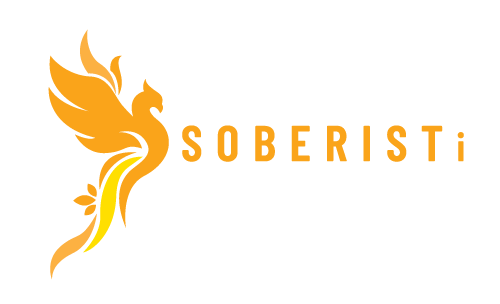THIS week, my daughter and I were in London, and one evening, we went to a praised Italian restaurant on a picturesque side street in Earl’s Court. While placing our order, an elegantly dressed older man peeked in through the door, interrupted us, and asked if he could have a glass of red wine on the terrace. He seemed to be in a rush.
THE waiter promised to bring it, and the man slipped back onto the terrace.
AS I was eating pizza, I watched from our window seat as the man sat outside in the dimming evening, sipping his red wine and smoking a cigarette. For a moment, I felt wistful: I will never do that again.
But then I remembered why I don’t. I remembered how horrible it was when I couldn’t focus on anything while waiting for that moment: the first puff and sip. How my thoughts constantly circled back to the moment I could pour wine into a glass. How nothing else seemed to matter, and how even that glass wouldn’t bring satisfaction.
THE atmospheric moment, which subliminal advertising and our society have ingrained into our subconscious since childhood, was over in an instant. After that, nothing special followed—just more cigarettes and wine. Or just wine by the time I had quit smoking.
I looked more closely at the man: he was no longer in a hurry, but he didn’t seem relaxed either. He was chain-smoking and didn’t let go of his glass until it was empty.
Maybe the man was just stressed, or maybe he was a fellow traveler. Maybe he’s keeping up appearances, managing his responsible job, taking care of his physical fitness, and using an enormous amount of energy to pretend to be a moderate drinker, for whom wine and cigarettes are just innocent pleasures.
IN the two years I’ve been sober, feelings of wistfulness have only come a few times. Most of those feelings came during the first year, in situations where I was sober for the first time.
RECENTLY, I’ve had a couple of dreams where I drank alcohol. In both dreams, I drank at large parties to please others, to fit in. I was relieved when I woke up and realized it was just a dream.
Someone who quit alcohol a few years ago once told me that they still haven’t found a way to unwind like alcohol used to. I found that incredibly sad. That you’ve freed yourself from a destructive dependency but still miss it. That you still need to “reset” your brain.
TO truly break free, you have to do more than just quit drinking. There was something in that previous life that led to drinking too much. You have to get to know yourself and figure out what you should let go of and what you need more of in your life. What hurts you, what does you good? Often, that requires courage and big changes. Sometimes, just changing your mindset is enough, though that, too, requires persistent work.
AS corny as it sounds, you have to learn to love yourself and make your everyday life enjoyable. In the beginning, I found it very difficult to understand how you learn to love yourself. Addicts often feel ashamed and hate themselves.
Loving yourself starts with being on your own side and no longer doing harm to yourself. You start doing good things for yourself, things that feel good and bring you joy. Additionally, you must learn to set your own boundaries and stick to them.
MY freedom required some pretty big steps: I resigned from my job to move away from the capital region so I could afford to live my dream: keeping a horse and starting a business. In doing so, I also learned to set boundaries and stand up for myself. Surprisingly, many people living in the capital area seemed to think that moving to another town was practically the same as committing suicide.
NOW we’ve lived in Hämeenlinna for a year in a lovely detached house (which cost less than half of my previous row house apartment in Espoo), just a hundred meters from the beach and within walking distance of the school and stables. My friends have admitted that it looks pretty wonderful here.
Every day, I feel happy and grateful for everything I have. I feel like anything is possible. I am fully present in my life, and I feel joy from everything beautiful I see: snow on the rowanberries, the sunrise, the rainbow, the full moon, my daughter’s laughter… It’s an amazing feeling—just like when I was a child.
THAT’S probably why people who break free from addiction are often seen as fanatics: you become hooked on life when you rediscover joy after so many years. That joy comes from small things that you learn to appreciate when you’ve once lost them.
I’M thinking of creating different categories for this blog next: “How to Know if Alcohol is a Problem,” “These Things Change When You Quit Alcohol,” and “How to Get Sober Easily and Joyfully.”
I’D be happy to receive comments and suggestions! And if you’d like to share your story anonymously for publication, you can email it to firstname.lastname (at) hotmail.com or write it in the comments section.
Happy Father’s Day to all!
– Ira Koivu


